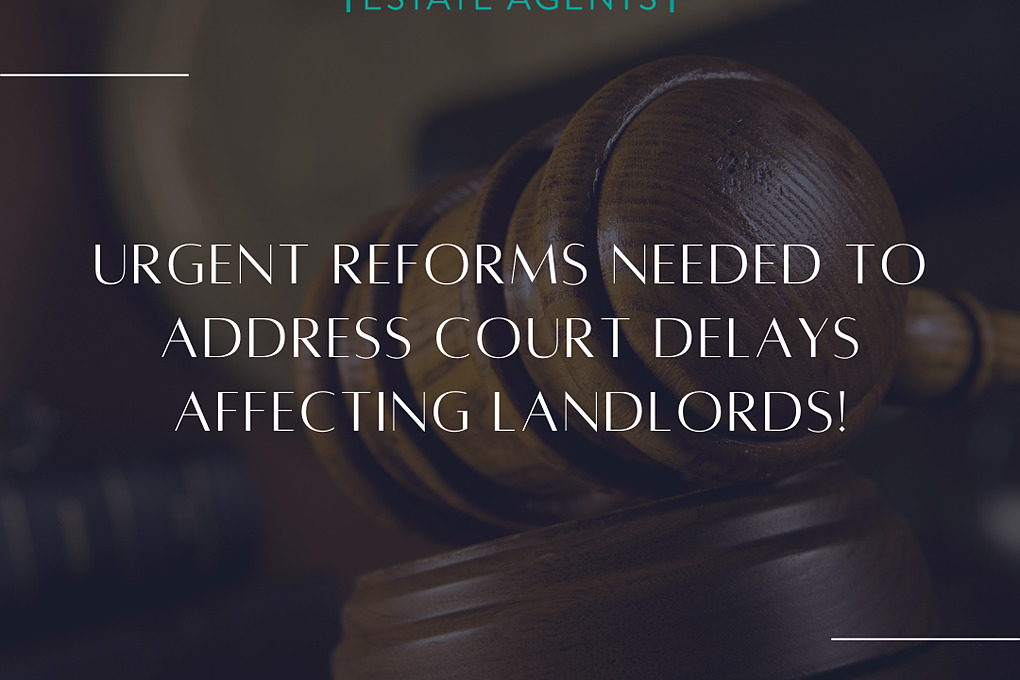In a significant call to the Ministry of Justice, the National Residential Landlords Association (NRLA) is advocating for critical reforms to address the lengthy court delays currently impeding landlords' ability to repossess properties. With some cases taking upwards of half a year to resolve, the association is pushing for a modernisation of the court process as the Renters’ Reform Bill looms, threatening the removal of Section 21.
The NRLA's outreach comes in the form of an open letter highlighting the concerns underscored by the Levelling Up, Housing & Communities (LUHC) Select Committee's report, which questions whether the government fully grasps how an unreformed courts system could impact proposed tenancy reforms.
As the Renters’ Reform Bill prepares for its Second Reading, the NRLA insists on receiving concrete assurances from Ministers regarding plans to diminish court backlog issues. They are suggesting several measures to enhance the court's efficiency. These measures include the adoption of digital systems for handling cases, an increase in the workforce dedicated to possession claims, and the establishment of targeted processing times. Additionally, the NRLA seeks transparency on how the Ministry anticipates the Bill will influence the court system's functionality.
Ben Beadle, the NRLA's Chief Executive, shed further light on the gravity of the situation, pointing out the longstanding inefficiency of the court service in handling cases relevant to landlords. He emphasised the particular plight of landlords who need to evict anti-social tenants or those with severe rent arrears. The impending Renters (Reform) Bill necessitates that the Government provide a lucid blueprint for court reform to maintain landlords' trust in the sector.
Section 21 has historically provided landlords the assurance that they can swiftly manage tenant-related issues. However, with its proposed abolition, the NRLA stresses the need for an alternative framework that ensures quick and efficient case processing.
Beadle advocates for a detailed plan that encompasses investment in court services, a clear digitalisation strategy, and ambitious but achievable case processing targets. Such reforms are vital for maintaining the confidence of responsible landlords and ensuring the smooth implementation of the Bill.
Without these reforms, the NRLA warns of a heightened crisis in the availability of rental housing, which could exacerbate the current situation. The organisation calls for immediate action to avoid further strain on an already pressurised sector and to ensure the justice system effectively supports the forthcoming changes in the rental market.
The NRLA's Chief Executive, Ben Beadle, stresses that the planned abolition of Section 21 should only be enacted once there is a robust system in place to handle the increased demand on the courts effectively. The Levelling Up Secretary's insistence on readiness is a critical acknowledgement, but the NRLA is seeking detailed and actionable plans.
As we stand on the cusp of significant changes to the rental market with the Renters’ Reform Bill, the NRLA's message is clear: the Government must take urgent action to enhance the court service's efficiency. Such improvements are not just for the benefit of landlords but are crucial to the overall health of the housing sector.
Landlords, who are integral to the provision of quality rented accommodation, must have confidence in a reformed court system that supports swift and fair resolution of possession cases. This confidence is crucial if the private rental sector is to continue to offer a significant contribution to the housing market.
The NRLA's call to action is not only a request but a necessary demand for a system that supports responsible landlords and protects the interests of the rental sector at large. As the UK faces challenges of housing supply and affordability, ensuring that the court system is efficient, fair, and effective is more important than ever. The time for that detailed plan of action from the Ministry of Justice, complete with the necessary reforms, is now.
The NRLA’s plea for a comprehensive strategy to reform court services is underscored by the impending shifts in the legislative landscape that will directly affect the rental market. This call to action is a testament to the sector's need for a judicial system that is not only responsive but also agile in the face of changing regulations.
In his remarks, Beadle underscores the critical nature of these reforms. The potential removal of Section 21 places a significant burden on the courts to handle cases efficiently to prevent undue hardship for landlords. It's a situation that demands not just incremental changes but a wholesale transformation of how possession cases are processed.
The NRLA is not just petitioning for changes that benefit landlords but also advocating for a system that serves the justice system's long-term interests. This involves investment in digital infrastructure that can streamline case handling, additional resources to deal with the anticipated increase in workload and clear benchmarks for processing times to restore faith in the court system's ability to manage these cases.
The call for digitalisation isn’t merely a nod to modernity but a critical step toward transparency and efficiency. It’s about leveraging technology to create a more dynamic court system that can adapt to the fluctuating demands of the housing market.
Moreover, setting processing targets is not about pressuring the system but establishing a clear expectation for performance that all parties can rely upon. This clarity is essential for landlords who, in the face of the Renters’ Reform Bill, need assurance that their cases will be handled promptly and fairly.
In conclusion, the NRLA's call to the Ministry of Justice is a clarion call for readiness and reassurance. It's a call to uphold the integrity of the rental market and the justice system alike. As the UK faces a pivotal moment in housing legislation, the importance of a reformed, ready, and resilient court service cannot be overstated. The Government's response to this call will be a defining factor in shaping the future landscape of rental housing in the UK.
 Like
Like